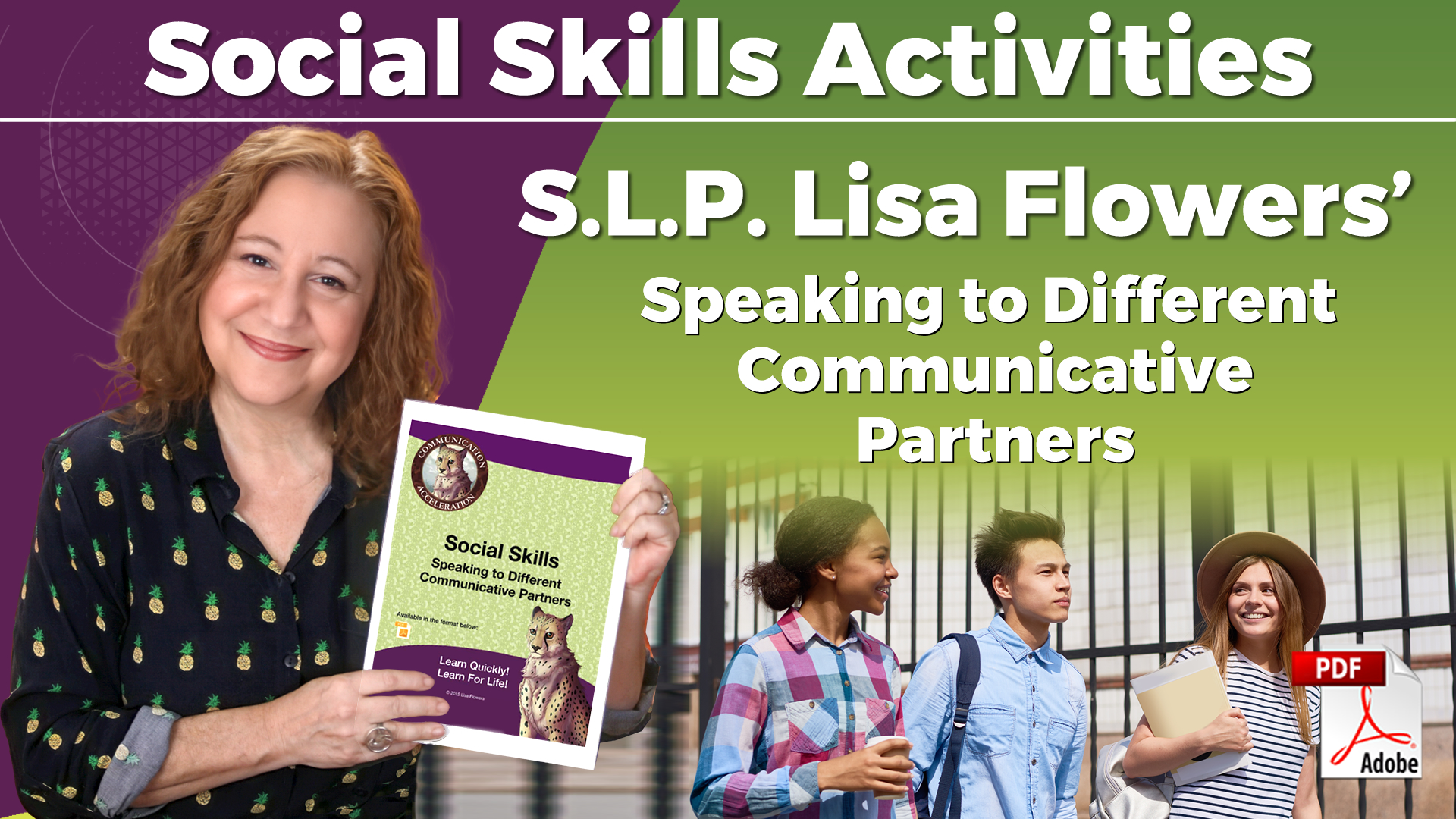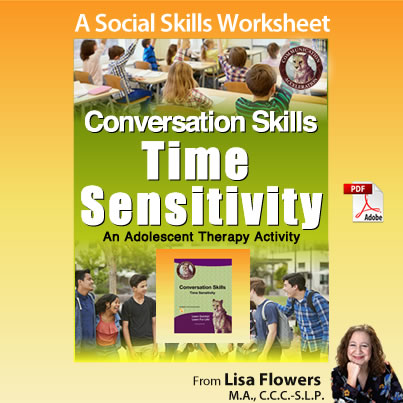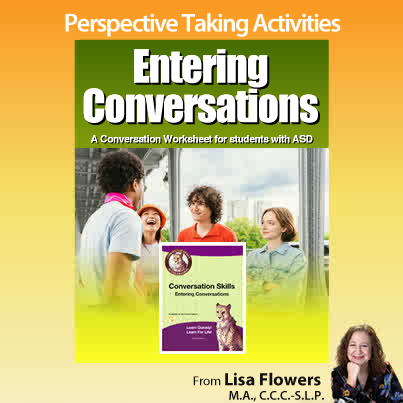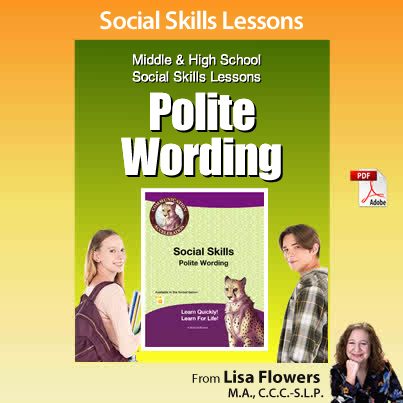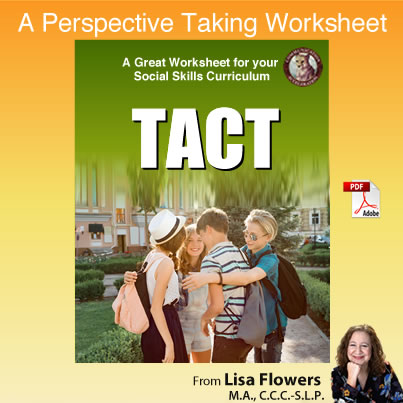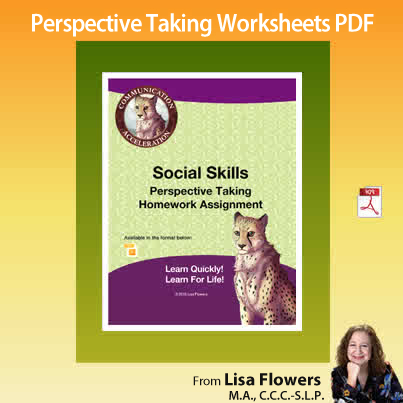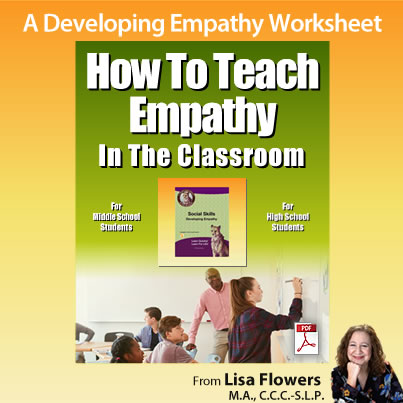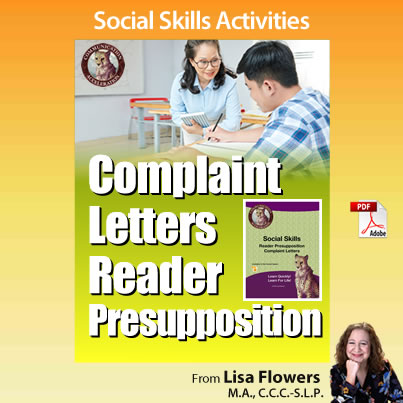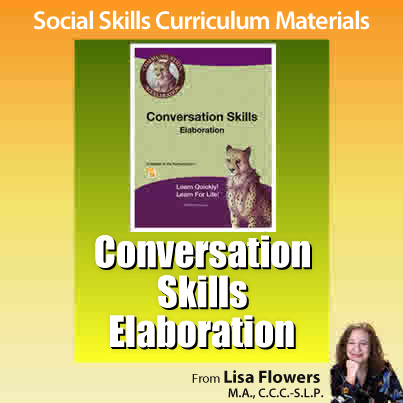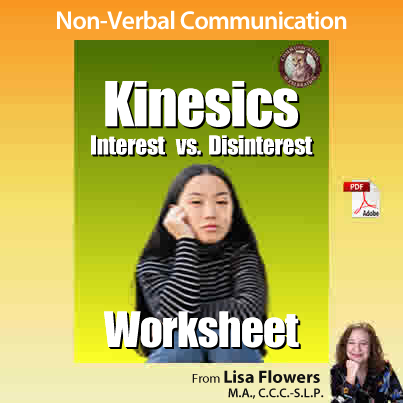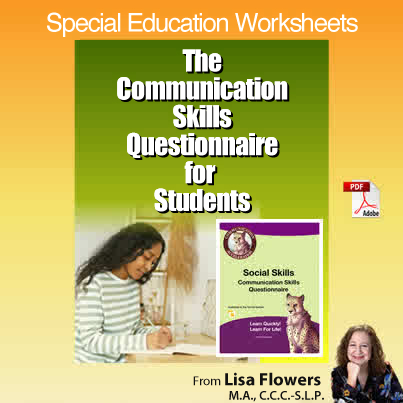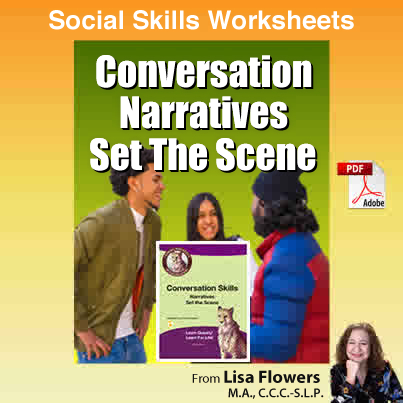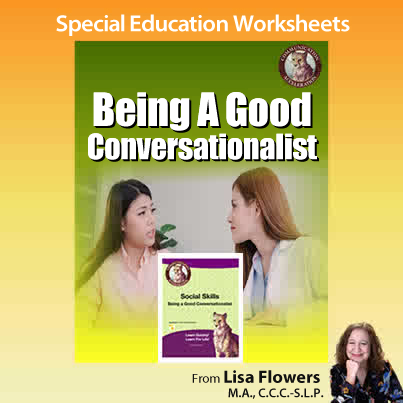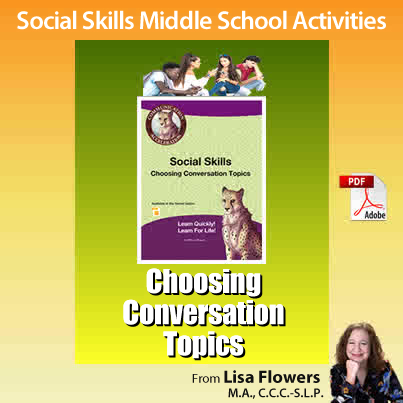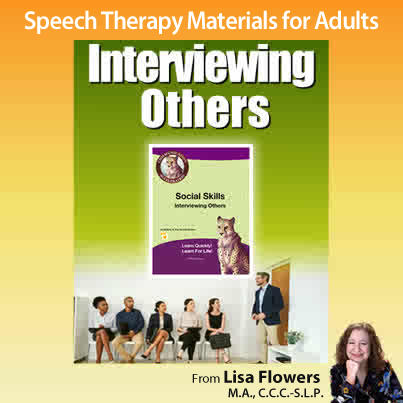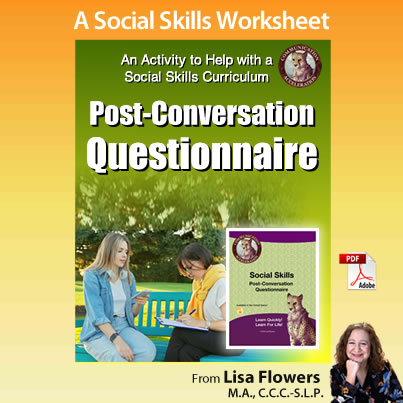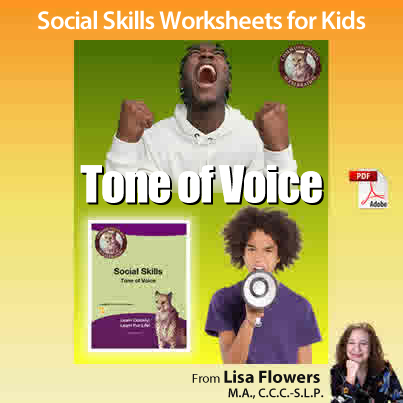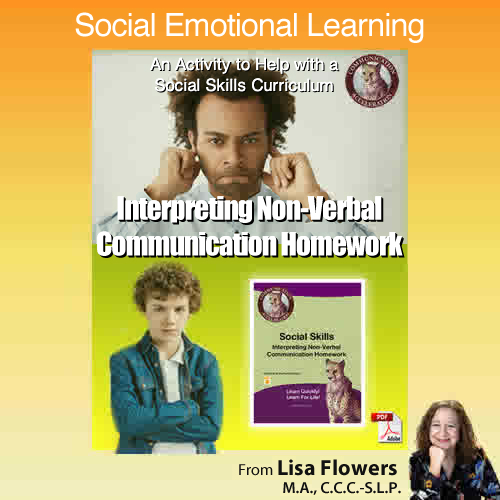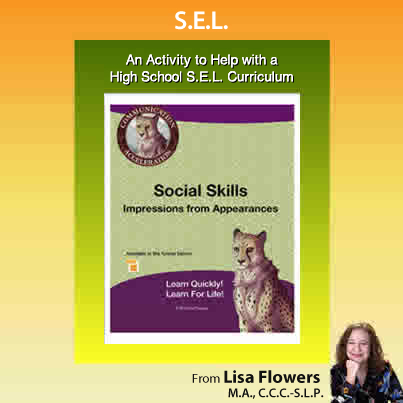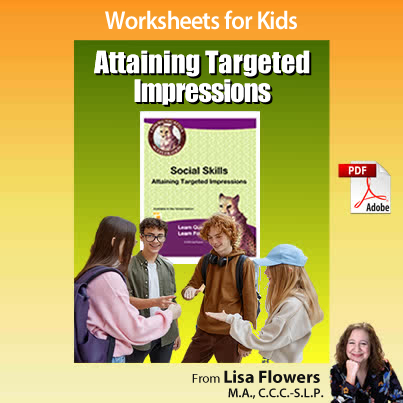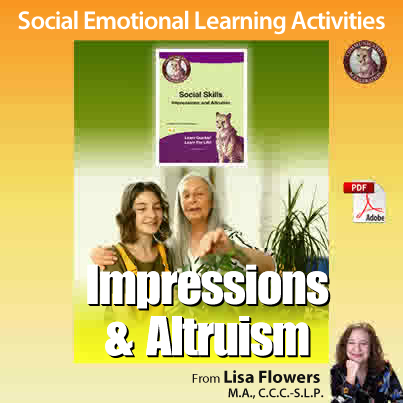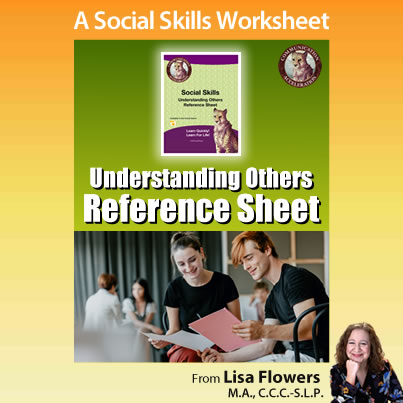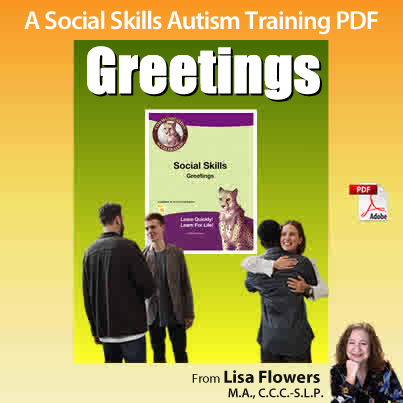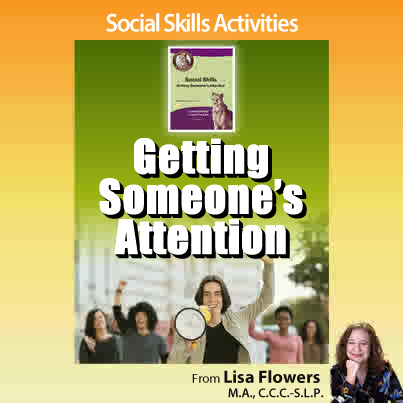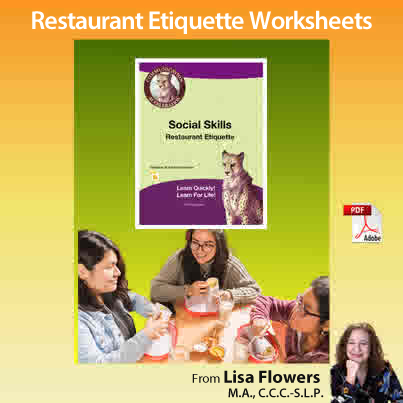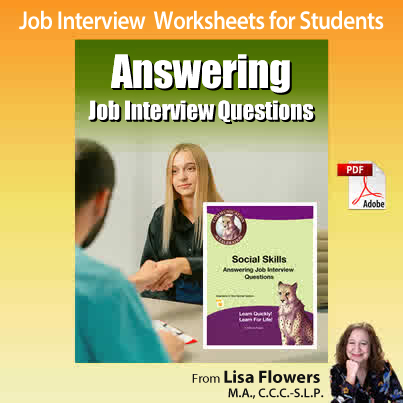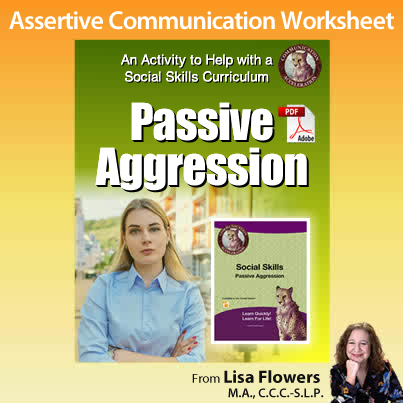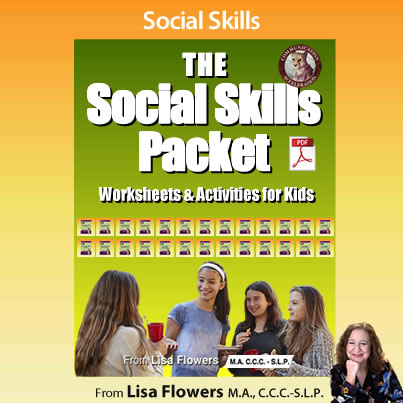Social Skills - Speaking to Different Communicative Partners
Social Skills / Speaking to Different Communicative Partners
Speaking to Different Communicative Partners
Watch the video to learn more
Click here for video transcription and ADA compliant audio for the video above
Speaking to Different Communicative Partners
This activity works on the ability to modify what we say depending on to whom we're speaking. For example, you may give a new friend different information about yourself than you would give a job interviewer.
Speaking to Different Communicative Partners
See the audio transcription below:
Welcome to my Speaking to Different Communicative Partners worksheets. Check out this excerpt from the training video I did for the New York City Department of Education. Next comes Speaking to Different Communicative Partners. Here's where they have to do code switching, right? When you're talking to your grandma it's going to be different from talking to your boss, which is going to be different from talking to your best friend. And here they have to really, just like with Impressions and Altruism, they have to think of what impression they want to give each particular person and also what the other person's needs are. Thanks for viewing my description of Speaking to Different Communicative Partners worksheets. If you like what you've seen here, please click and subscribe to my channel. I'm not exactly sure what that means, but my web guy told me it's a thing!
Get Great Social Skills Worksheets to add to your Social Emotional Learning Curriculum!
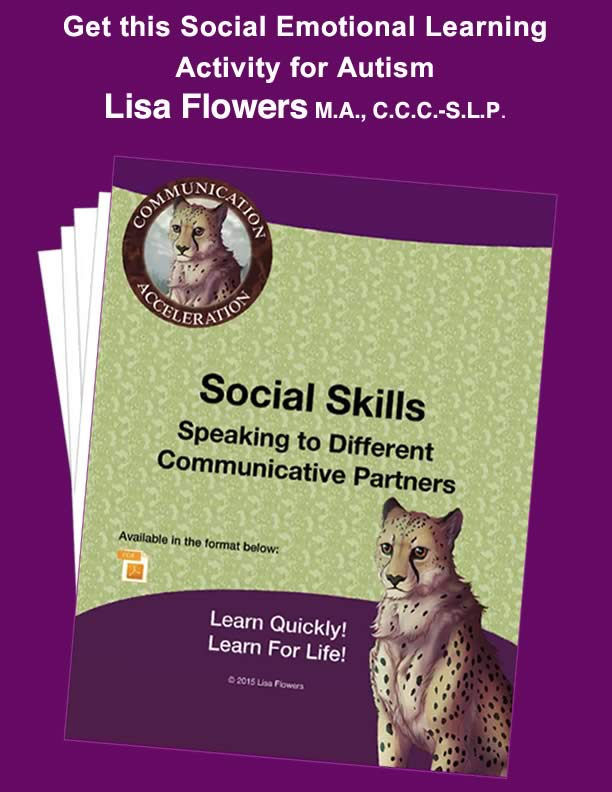
Speaking to Different Communicative Partners
Theory of Mind concerns itself with understanding the perspectives of others and being able to walk a proverbial mile in their shoes; the resultant skill of adjusting one's own behavior accordingly is therefore pivotal.
Being able to adjust to the needs and sensitivities of a conversational partner is an essential skill that individuals on the autism spectrum typically struggle with. Listener presupposition—as it pertains to information your conversational partners do or don’t need, and how what you say gives a specific impression of you — is vital to successful and effective communication. These worksheets directly assist in strengthening the social skills involved in listener presupposition. Students provide hypothetical verbal answers to a variety of questions without knowing with whom the conversation would take place. They then select which (if any) portions of their answers they would alter or remove with the identity of their listener (such as a grandparent, job interviewer, or new friend) taken into account. Afterward, students can discuss and modify their answers further. Three distinct worksheets are included and will foster growth in the listener presupposition skills of students.
Related worksheets to Social Skills
These social skills worksheets and activities for individuals with Autism and Social Pragmatic Communication Disorders target a variety of social skills, including the development of empathy, perspective taking, kinesics, listener/reader presupposition, and conversational skills.
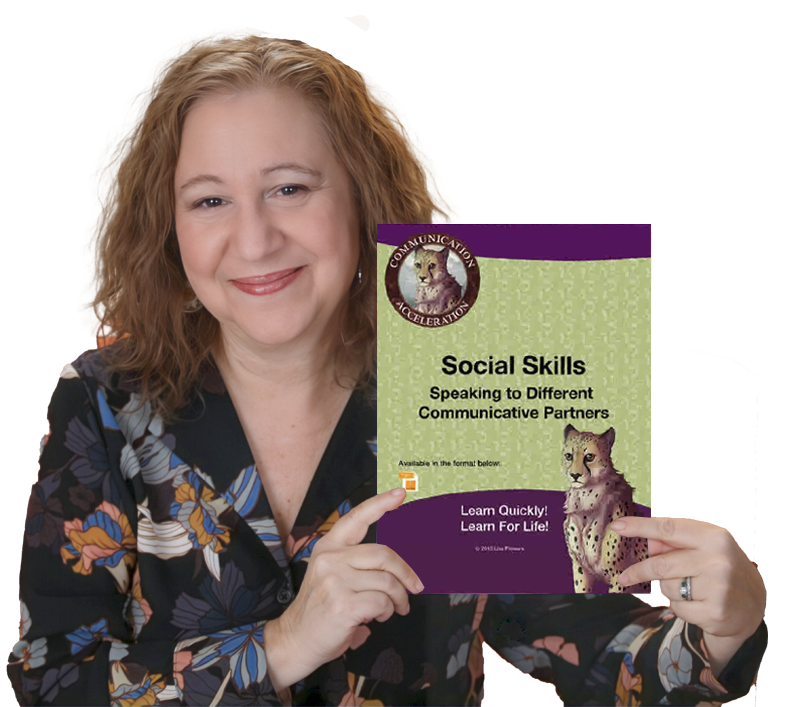

Search Another Way
Get Social Skills
Packet
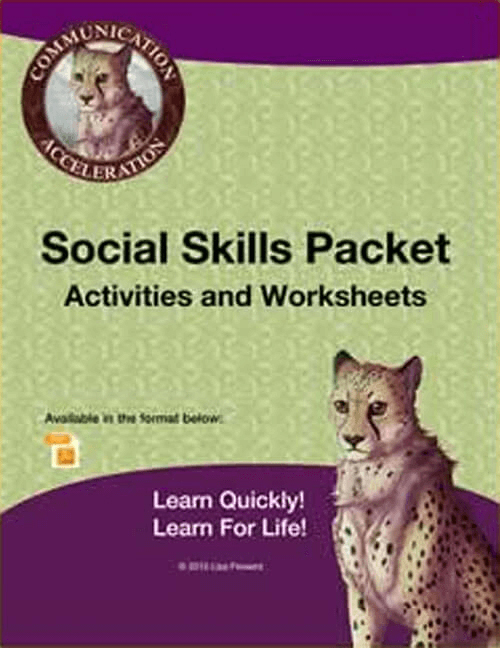
A collection of 28 social skills worksheets and activities that cover conversation skills, kinesics, perspective taking, development of empathy, and real-world communication.
Get 52 Lessons & Activities
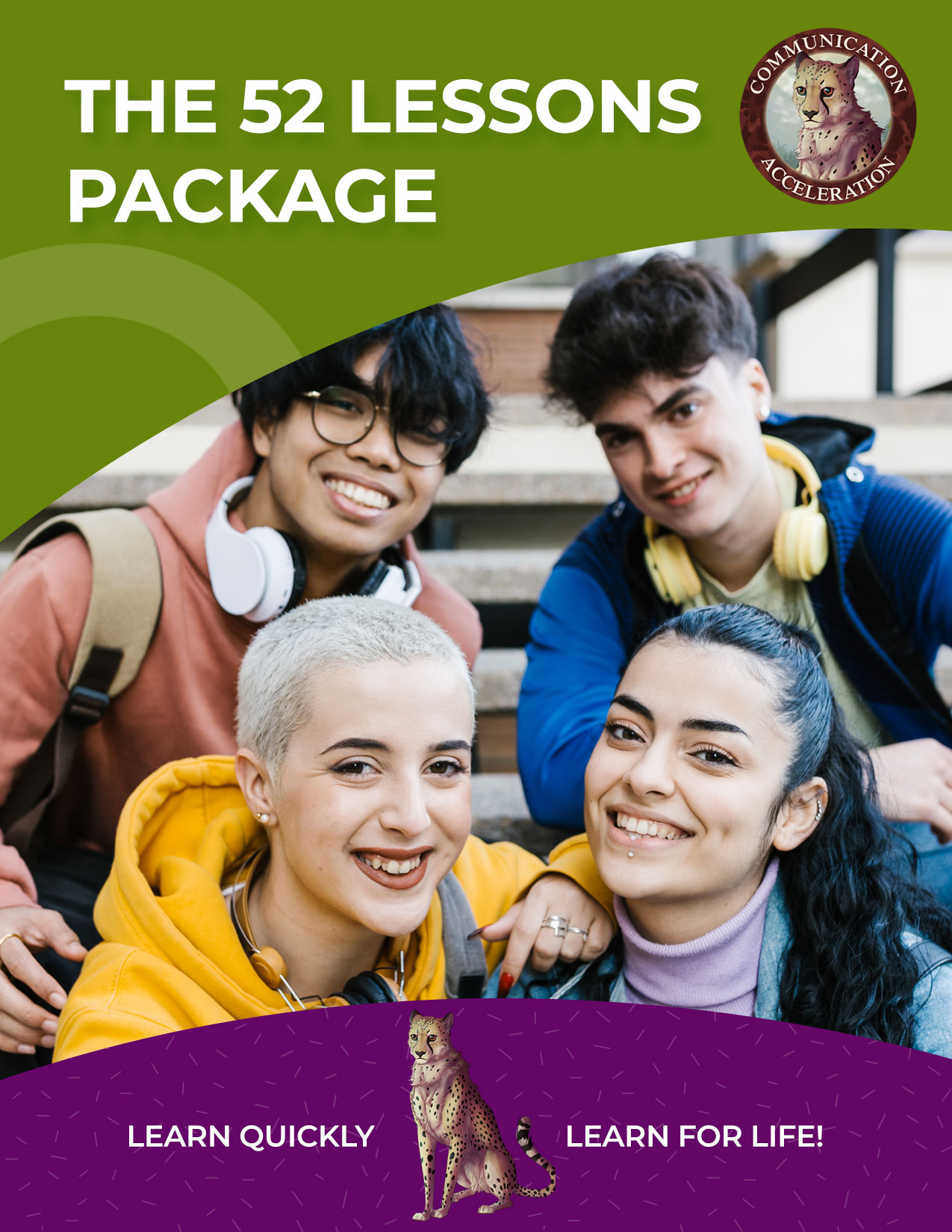
A collection of 52 language and communication worksheets and activities that cover a plethora of reading comprehension, writing, grammar, and social communication skills.
